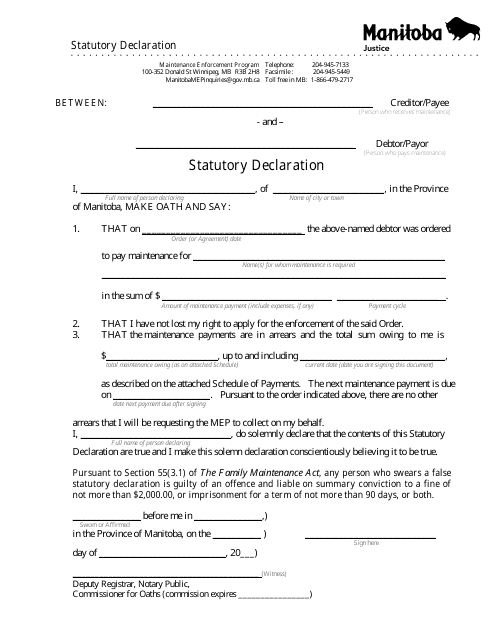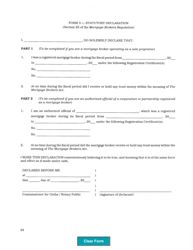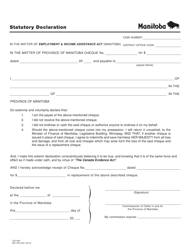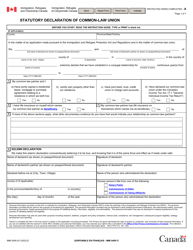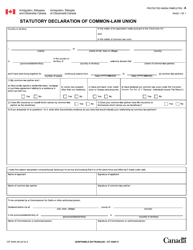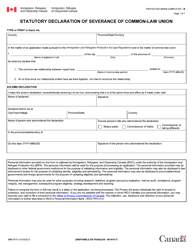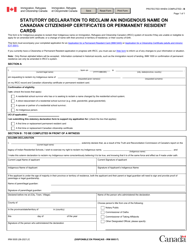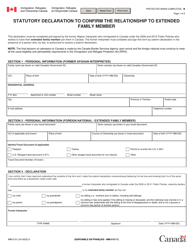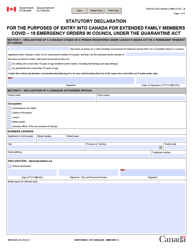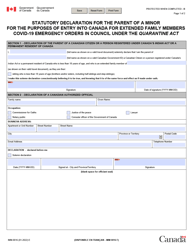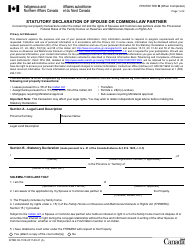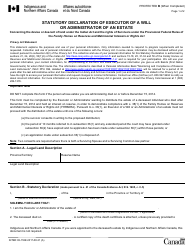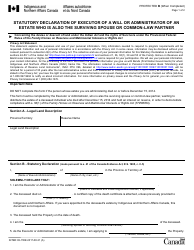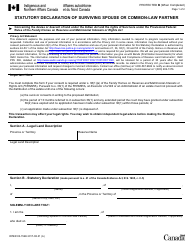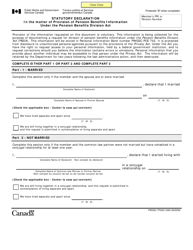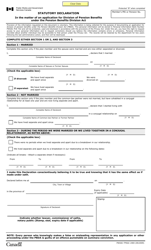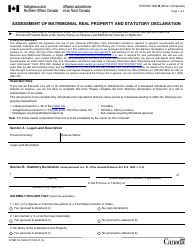Statutory Declaration - Manitoba, Canada
A Statutory Declaration in Manitoba, Canada is a written statement made under oath or affirmation used to declare the truthfulness of certain facts or information. It is commonly used for various legal purposes, such as confirming identity, affirming the accuracy of documents, or providing evidence in legal proceedings.
In Manitoba, Canada, a statutory declaration is typically filed by the individual making the declaration, also known as the declarant.
FAQ
Q: What is a Statutory Declaration?
A: A Statutory Declaration is a written statement made under oath and witnessed by a person authorized to administer oaths.
Q: Why would I need a Statutory Declaration?
A: You may need a Statutory Declaration to provide a sworn statement of facts or to authenticate certain documents.
Q: Who can make a Statutory Declaration?
A: Any individual who is competent to give evidence can make a Statutory Declaration.
Q: How do I make a Statutory Declaration?
A: To make a Statutory Declaration, you must write down the statement you wish to make, sign it in the presence of a Commissioner for Oaths or a Notary Public, and have it witnessed and stamped by them.
Q: What is the role of a Commissioner for Oaths or a Notary Public?
A: A Commissioner for Oaths or a Notary Public is authorized by law to administer oaths and witness Statutory Declarations.
Q: Is a Statutory Declaration legally binding?
A: Yes, a Statutory Declaration is a legally binding document and making false statements in a Statutory Declaration is considered perjury.
Q: Can I use a Statutory Declaration from another province or country in Manitoba?
A: In most cases, a Statutory Declaration from another province or country will be recognized in Manitoba, but it is recommended to consult with legal authorities to ensure its validity.
